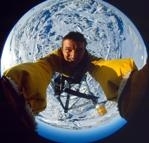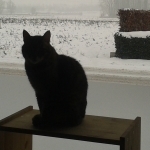Certainly this is the case for the GP and the CBTer. I still hold good hope for the last sleep doctor. Genuinely seems to be switched on and tapped into current research. I certainly don't feel that I need to search any further for a sleep doctor that will engage at a level that I respect. He reads PSGs with fluidity and pulls data out left, right and centre. Cheers,NotMuffy wrote:One/some/all of them may be unfamiliar with the PLM/OSA/sleep fragmentation/SSRI relationships...
CompSA, Hypoventilation, PLMs, Bradycardia and Hypotension?
- blizzardboy
- Posts: 368
- Joined: Mon Feb 15, 2010 12:13 am
- Location: South Australia
Re: CompSA, Hypoventilation, PLMs, Bradycardia and Hypotension?
Machine: Resmed VPAP Adapt SV Enhanced
Mask: Resmed Quattro/Mirage Liberty
Humidifier: Resmed H2i
Other comments: Sleepzone heated tube; CMS-50E SPO2 & CMS-60C ABPM
Mask: Resmed Quattro/Mirage Liberty
Humidifier: Resmed H2i
Other comments: Sleepzone heated tube; CMS-50E SPO2 & CMS-60C ABPM
Re: CompSA, Hypoventilation, PLMs, Bradycardia and Hypotension?
I don't really know you, either.blizzardboy wrote:I don't know what I am going to tell you this NM, given that I hardly even know you...
Course, we'll always have Singapore.
NotMuffy
"Don't Blame Me...You Took the Red Pill..."
Re: CompSA, Hypoventilation, PLMs, Bradycardia and Hypotension?
BB, while your TSH is good, your free T4 and free T3 are pretty durned low. Some researchers say when they are in the lower third, it bears watching. Suggests to me that your cells are converting T4 (storage form) very well to the necessary T3 (active form) because your brain isn't callling for more thyroid via TSH (thyroid stimulating hormone). Nothing else caught my eye but then I'm not in the medical field either . ALT and AST could be lower but they made the pt that the transferrin could indicate inflammation so that might be why (or my foggy brain isn't making the right linkages right now ). Your body's not compensating for low oxygen...that's gotta be a relief!
Re the SSRI...bad stuff! If I were in your shoes, I'd start taking omega 3 EFAs (essential fatty acids); they achieve the same psychoactive results as the SSRIs without the side effects. Think I've read a few abstracts that say they can be taken at the same time without causing problems, thus are supportive while weaning off the SSRI and dealing with any drug withdrawal problems (investigate before trying this, my memory's got holes ). The body requires the right ratio between the omega 3 and omega 6 EFAs, many times more 3 than 6. The 3 form is used to surround each brain cell ensuring optimal cell to cell communication; without the 3, the body will use 6 but this form makes a very permeable cell membrane that does not function optimally (undermining cell to cell communication) and typically resulting in depression and/or mood disorders along with other effects in the brain and other tissues. Worth investigating. I take Coromega gel packettes and a high DHA (low EPA) supplement to help my brain recover from apnea-caused brain damage.
Good luck with all this...I'm an avid follower.
Re the SSRI...bad stuff! If I were in your shoes, I'd start taking omega 3 EFAs (essential fatty acids); they achieve the same psychoactive results as the SSRIs without the side effects. Think I've read a few abstracts that say they can be taken at the same time without causing problems, thus are supportive while weaning off the SSRI and dealing with any drug withdrawal problems (investigate before trying this, my memory's got holes ). The body requires the right ratio between the omega 3 and omega 6 EFAs, many times more 3 than 6. The 3 form is used to surround each brain cell ensuring optimal cell to cell communication; without the 3, the body will use 6 but this form makes a very permeable cell membrane that does not function optimally (undermining cell to cell communication) and typically resulting in depression and/or mood disorders along with other effects in the brain and other tissues. Worth investigating. I take Coromega gel packettes and a high DHA (low EPA) supplement to help my brain recover from apnea-caused brain damage.
Good luck with all this...I'm an avid follower.
ResMed S9 range 9.8-17, RespCare Hybrid FFM
Never, never, never, never say never.
Never, never, never, never say never.
Re: CompSA, Hypoventilation, PLMs, Bradycardia and Hypotension?
While one experience does not a study make, I remember that back when I first started having the fatigue symptoms (pre-cpap), my thryoid levels were also still "normal" but I had a couple of blood markers that also indicated infection/inflammation (CRP was high, also something else but can't remember what). Since the thyroid is a sensitive organ and can be affected by for example viruses, it doesn't take too much imagination to think the inflammation is also the start of the thyroid malfunction.... of course "inflammation" is very general, and i'm not a doctor, and i'm drawing wild conclusions from thin air merely food for thought!Muse-Inc wrote:ALT and AST could be lower but they made the pt that the transferrin could indicate inflammation so that might be why (or my foggy brain isn't making the right linkages right now ). Your body's not compensating for low oxygen...that's gotta be a relief!
PR System One APAP, 10cm
Activa nasal mask + mouth taping w/ 3M micropore tape + Pap-cap + PADACHEEK + Pur-sleep
Hosehead since 31 July 2007, yippie!
Activa nasal mask + mouth taping w/ 3M micropore tape + Pap-cap + PADACHEEK + Pur-sleep
Hosehead since 31 July 2007, yippie!
Re: CompSA, Hypoventilation, PLMs, Bradycardia and Hypotension?
Re the MULTIPLE NIGHTLY WAKEUPS sub-thread
Saw my sleep doc today, dumped my SpO2 & pulse graphs lined up with my ResScan charts, 6-month medians & 95thcentiles & max numbers (just made 6-months on my much-loved APAP, freedom from CPAP), my analysis of several nights of hypopneas (time they occurred, leak & pressure at the time) to see if there was a pattern that suggested changes. We agreed that my therapy is about as good as it can be right now.
About the wakeups: likely from a combination of
Saw my sleep doc today, dumped my SpO2 & pulse graphs lined up with my ResScan charts, 6-month medians & 95thcentiles & max numbers (just made 6-months on my much-loved APAP, freedom from CPAP), my analysis of several nights of hypopneas (time they occurred, leak & pressure at the time) to see if there was a pattern that suggested changes. We agreed that my therapy is about as good as it can be right now.
About the wakeups: likely from a combination of
- Getting older
- Depression (situational, no perm job, $ worries, etcetera)
- Obesity
- OSA
Thanks BB for the heads-up on that not yet published Australian study for the preceding 3 causing arousals. We (doc & I) are theorizing mine might be terminating at S1 or fully awake as I had a fair amt of arousals during my PSG. - Not yet fully treated hypothroidism (doc will attest that I'm not a nutcase to my primary when I insist on trialing a larger dose of thyroid med to reduce more symptoms of low thyroid regardless of my lab value being in the "normal" range; gonna start thinking of how to approach this with my primary.)
- Don't go the bed until I'm ready to go to sleep (if I'm wired, do something boring to slow down brain)
- Physical relaxation tehniques in the evening
- Melatonin if the dreading sleep behavior continues after initiating the first 2. Take 3-4 hrs prior to bedtime.
- When I do wakeup at night count my breaths in cyles of 20 (1-20, 1-20...) as that will likely divert my attention from thinking about the wakeup. Use this during the day when I start to get too wired/too stressed (Lyn will also begin practicing yoga breathing again.)
- As energy improves, resume exercise.
ResMed S9 range 9.8-17, RespCare Hybrid FFM
Never, never, never, never say never.
Never, never, never, never say never.
- blizzardboy
- Posts: 368
- Joined: Mon Feb 15, 2010 12:13 am
- Location: South Australia
Re: CompSA, Hypoventilation, PLMs, Bradycardia and Hypotension?
Hi M-I, My sleep doctor said that arousals associated with higher BMIs was due to extra weight around the abdomen, resulting in interference with the diaphragm's movement during sleep, higher thoracic pressure, etc. If only us Westerners could devise a way to require higher physical energy expenditure in order to gain food energy, just like we used to do when we hunted and gathered. Cycle-powered microwave? Rowing-machine powered TV? We would also have the added benefit through physical exertion of having tired bodies when we went to sleep, not just tired minds.Muse-Inc wrote:About the wakeups: likely from a combination of...Obesity
All the best with your strategies for getting to sleep and sleeping through. Cheers,
Machine: Resmed VPAP Adapt SV Enhanced
Mask: Resmed Quattro/Mirage Liberty
Humidifier: Resmed H2i
Other comments: Sleepzone heated tube; CMS-50E SPO2 & CMS-60C ABPM
Mask: Resmed Quattro/Mirage Liberty
Humidifier: Resmed H2i
Other comments: Sleepzone heated tube; CMS-50E SPO2 & CMS-60C ABPM
Re: CompSA, Hypoventilation, PLMs, Bradycardia and Hypotension?
Manure!blizzardboy wrote:Hi M-I, My sleep doctor said that arousals associated with higher BMIs was due to extra weight around the abdomen, resulting in interference with the diaphragm's movement during sleep, higher thoracic pressure, etc.Muse-Inc wrote:About the wakeups: likely from a combination of...Obesity
While it can easily be shown that obesity is a sleep disruptor, "IMHO" it absolutely cannot explain your degree of sleep instability, and much to most of the influence of weight would have been accounted for once you went on therapy, especially a mode like ASV which significantly reduces that effort your guy claims is the root of your issues.
Now I'm APOed. That's a lame rationalization. Put the fork down, get your DA outside and kick The Rock around for a while. "Gee, there's no saber-toothed tiger chasing me around" is not a satisfactory explanation for being out of shape.blizzardboy wrote: If only us Westerners could devise a way to require higher physical energy expenditure in order to gain food energy, just like we used to do when we hunted and gathered.
Muffy
"Don't Blame Me...You Took the Red Pill..."
Re: CompSA, Hypoventilation, PLMs, Bradycardia and Hypotension?
Controller Gain would not directly be a source for sleep instability. It could generate breathing instability, but a lot of people worked a lot a years on an algorithm specifically designed to NOT screw up Controller Gain in CompSAS (although actually, if you read back you will discover that the ASV algorithm was invented to treat CSR, and then when it turned out that CSR could/should be treated pharmacologically, we had a solution looking for a problem. Fortunately, Bob and Geoff invented CSBD).blizzardboy wrote:...in regard (to) my Controller Gain being the source of my sleep instability...Muffy wrote:Well, "IMHO", that difference simply represents the effect of Controller Gain that is taken out of context, but you guys go ahead with the dial wingin', I'll wait here, you'll be right back where you started from soon enough. I'm going to stay on the "sleep instability" bus until a few more rocks are overturned.
Given your new -HCO3, which puts your pCO2 probably at about 43 mmHg or so, we can now focus on a more conventional explanation, but given your inability to generate many frank central apneas, where your apneic threshold sits is, "IMHO", academic.blizzardboy wrote:...would you agree that during sleep my average PCO2 probably sits quite close the apneic threshold, and that this is likely due to an unusual Controller setting?
Muffy
________________________________
Machine: Dell Dimension 8100
Mask: 3M N-95 (during flu season)
Humidifier: Avoided, tends to make me moldy
Software: XP Pro
Additional Comments: You can't find a solution when you don't know the problem
Machine: Dell Dimension 8100
Mask: 3M N-95 (during flu season)
Humidifier: Avoided, tends to make me moldy
Software: XP Pro
Additional Comments: You can't find a solution when you don't know the problem
- StillAnotherGuest
- Posts: 1005
- Joined: Sun Sep 24, 2006 6:43 pm
Re: CompSA, Hypoventilation, PLMs, Bradycardia and Hypotension?
I would say that the underlying issues have to do where your arousal threshold is, and not where your apnea threshold is.blizzardboy wrote:...would you agree that during sleep my average PCO2 probably sits quite close the apneic threshold, and that this is likely due to an unusual Controller setting?
SAG

Aromatherapy may help CPAP compliance. Lavender, Mandarin, Chamomile, and Sweet Marjoram aid in relaxation and sleep. Nature's Gift has these and a blend of all four called SleepEase.
- blizzardboy
- Posts: 368
- Joined: Mon Feb 15, 2010 12:13 am
- Location: South Australia
Re: CompSA, Hypoventilation, PLMs, Bradycardia and Hypotension?
Woah, woah. He wasn't suggesting that my arousals are due to excess weight around my stomach, he was just summarising the findings of the research. I agree, my sleep issues are not due to the size my tummy! I am using the same belt hole I was over a decade ago.NotMuffy wrote:Manure!blizzardboy wrote:Hi M-I, My sleep doctor said that arousals associated with higher BMIs was due to extra weight around the abdomen, resulting in interference with the diaphragm's movement during sleep, higher thoracic pressure, etc.Muse-Inc wrote:About the wakeups: likely from a combination of...Obesity
While it can easily be shown that obesity is a sleep disruptor, "IMHO" it absolutely cannot explain your degree of sleep instability, and much to most of the influence of weight would have been accounted for once you went on therapy, especially a mode like ASV which significantly reduces that effort your guy claims is the root of your issues.
I think you missed my point. I wasn't creating an excuse for my being out of shape, but making a general observation about the ease with which we can consume calories in the West without having to expend much physical energy to do so. Would we have such an obesity problem in the West if we had to work hard physically for our food? Of course, having just driven down and bought pre-processed food from the store to take back to my airconditioned house (after sitting all day in an office chair), I am free to go and kick the pill rather than sit and watch TV. Its just that, because I don't have to do the daily grind, I need to create a way of building an equivalent form of exercise into my busy day. As a modern-day Westerner, my physical well being must be maintained in my spare time through personal discipline rather than addressed in a fundamental drive to physically bring enough food to the table to feed my family. I think that is a profound change in the way we need to structure our lives today to be healthy. Now making healthy food choices in the West, well that's a whole other problem...NotMuffy wrote:Now I'm APOed. That's a lame rationalization. Put the fork down, get your DA outside and kick The Rock around for a while. "Gee, there's no saber-toothed tiger chasing me around" is not a satisfactory explanation for being out of shape.blizzardboy wrote: If only us Westerners could devise a way to require higher physical energy expenditure in order to gain food energy, just like we used to do when we hunted and gathered.
Machine: Resmed VPAP Adapt SV Enhanced
Mask: Resmed Quattro/Mirage Liberty
Humidifier: Resmed H2i
Other comments: Sleepzone heated tube; CMS-50E SPO2 & CMS-60C ABPM
Mask: Resmed Quattro/Mirage Liberty
Humidifier: Resmed H2i
Other comments: Sleepzone heated tube; CMS-50E SPO2 & CMS-60C ABPM
Re: CompSA, Hypoventilation, PLMs, Bradycardia and Hypotension?
blizzardboy wrote:I need to create a way of building an equivalent form of exercise into my busy day.
NMblizzardboy wrote:I have four children under the age of 7.
"Don't Blame Me...You Took the Red Pill..."
- blizzardboy
- Posts: 368
- Joined: Mon Feb 15, 2010 12:13 am
- Location: South Australia
Re: CompSA, Hypoventilation, PLMs, Bradycardia and Hypotension?
I am starting to think the evidence would say that I don't need ASV. It would seem that I have non-periodic breathing instability and that my central apneas are natural i.e. associated with arousals as any normal person exhibits when transitioning from wake to sleep states. I have a moderate case of OSA that could possibly be reduced if I lowered my BMI a few units. I am hypersensitive to touch and sound (and too a lesser extent light), so maybe my Controller is also a bit sensitive to increased PCO2 resulting in reduced arousal threshold. My sleep hygeine is pretty good now, and I am becoming increasingly physically active with each passing week. I have fluoxetine (Prozac) resident in my brain which could be contributing to arousals during sleep.Muffy wrote:Controller Gain would not directly be a source for sleep instability. It could generate breathing instability, but a lot of people worked a lot a years on an algorithm specifically designed to NOT screw up Controller Gain in CompSAS (although actually, if you read back you will discover that the ASV algorithm was invented to treat CSR, and then when it turned out that CSR could/should be treated pharmacologically, we had a solution looking for a problem. Fortunately, Bob and Geoff invented CSBD).
Hi Muffy, Thanks for that. So, rather than having CompSA, would you say that I had moderate OSA (likely downgraded to mild OSA with reduced BMI), sleep instability (likley due to degraded sleep hygeine, mental health issues and fluoxetine), and breathing instability (likely due to CR being overly sensitive to increases in PCO2; possibly a result of meningitis as a baby)?Muffy wrote:Given your new -HCO3, which puts your pCO2 probably at about 43 mmHg or so, we can now focus on a more conventional explanation, but given your inability to generate many frank central apneas, where your apneic threshold sits is, "IMHO", academic.blizzardboy wrote:...would you agree that during sleep my average PCO2 probably sits quite close the apneic threshold, and that this is likely due to an unusual Controller setting?
Machine: Resmed VPAP Adapt SV Enhanced
Mask: Resmed Quattro/Mirage Liberty
Humidifier: Resmed H2i
Other comments: Sleepzone heated tube; CMS-50E SPO2 & CMS-60C ABPM
Mask: Resmed Quattro/Mirage Liberty
Humidifier: Resmed H2i
Other comments: Sleepzone heated tube; CMS-50E SPO2 & CMS-60C ABPM
Re: CompSA, Hypoventilation, PLMs, Bradycardia and Hypotension?
Can you post the actual S9 DL on your website?
dd
dd
...other than food...
- blizzardboy
- Posts: 368
- Joined: Mon Feb 15, 2010 12:13 am
- Location: South Australia
Re: CompSA, Hypoventilation, PLMs, Bradycardia and Hypotension?
Hi NM, Brilliant summary. And it is a fact that, less than 6 months ago, because I was lying on the couch neglecting to play with the Fabulous Four due to being too sleepy and fatigued that an alarm rang loud enough to drive me out of my stupour and ask my GP for a sleep study. Tada...and now I am here, happily chatting to a moustached muffin having successfully spent 3 hours today with my Four riding bikes at a 7-year-old's birthday party without getting grumpy or irritable - my wife (who stayed at home to rest) is amazed by my new-found endurance. No problem playing with them now that I am on the CPAP! Cheers,NotMuffy wrote:blizzardboy wrote:I need to create a way of building an equivalent form of exercise into my busy day.blizzardboy wrote:I have four children under the age of 7.
Machine: Resmed VPAP Adapt SV Enhanced
Mask: Resmed Quattro/Mirage Liberty
Humidifier: Resmed H2i
Other comments: Sleepzone heated tube; CMS-50E SPO2 & CMS-60C ABPM
Mask: Resmed Quattro/Mirage Liberty
Humidifier: Resmed H2i
Other comments: Sleepzone heated tube; CMS-50E SPO2 & CMS-60C ABPM
- blizzardboy
- Posts: 368
- Joined: Mon Feb 15, 2010 12:13 am
- Location: South Australia
Re: CompSA, Hypoventilation, PLMs, Bradycardia and Hypotension?
Hi SAG, Thanks for that, I think I can see now how that would be the case. Cheers,StillAnotherGuest wrote:I would say that the underlying issues have to do where your arousal threshold is, and not where your apnea threshold is.blizzardboy wrote:...would you agree that during sleep my average PCO2 probably sits quite close the apneic threshold, and that this is likely due to an unusual Controller setting?
Machine: Resmed VPAP Adapt SV Enhanced
Mask: Resmed Quattro/Mirage Liberty
Humidifier: Resmed H2i
Other comments: Sleepzone heated tube; CMS-50E SPO2 & CMS-60C ABPM
Mask: Resmed Quattro/Mirage Liberty
Humidifier: Resmed H2i
Other comments: Sleepzone heated tube; CMS-50E SPO2 & CMS-60C ABPM














